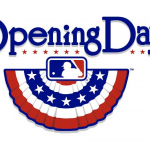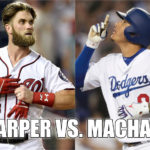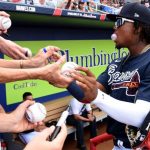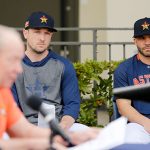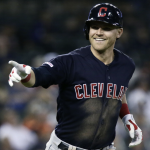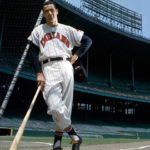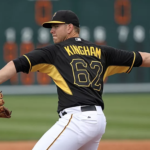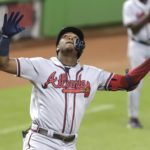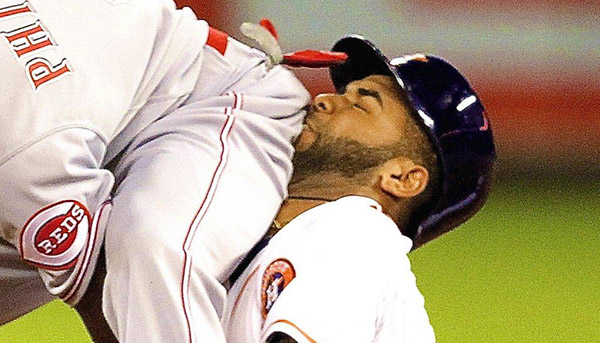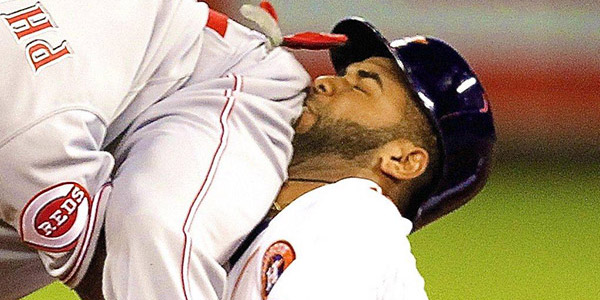How A.J. Hinch Lost the World Series
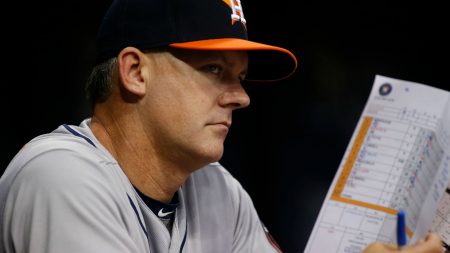 Talent can win World Series titles, but baseball has shown that it isn’t only talent that wins. And in this micro-managing and analytics era that is taking over baseball right now, we’ve seen championship teams managed very creatively and unconventionally, whether based on the numbers or not.
Talent can win World Series titles, but baseball has shown that it isn’t only talent that wins. And in this micro-managing and analytics era that is taking over baseball right now, we’ve seen championship teams managed very creatively and unconventionally, whether based on the numbers or not.
One concept that has worked is using starting pitchers out of the bullpen, which was done predominantly by the last three World Series Champions—including this year’s Washington Nationals. Oftentimes, it’s done to hide deficiencies of a questionable bullpen, but it also works when you have starting talent and depth.
In this World Series, the Nationals and Astros both had starting depth. Yet after having it be a strength for him in 2017, why didn’t A.J. Hinch go back to it with even better starters? In a series where starting pitching talent canceled each other out, it seemed like the Astros relied on just being more talented. And the lack of creativity with those starters, among other things, hurt the Astros.
Let’s compare the Astros’ two World Series trips to evaluate this concept. The Nationals used Patrick Corbin out of the bullpen in two different instances in Games 1 and 7, both resulting in wins. They also used Joe Ross in Game 3, who pitched two scoreless innings.
The Astros only did that in Game 4, when they went with Jose Urquidy as an opener, and then went to Josh James and Brad Peacock. While Peacock pitched other times in that series, he was being used as a specialist more than somebody to give them length, which is strange for a starter-reliever hybrid.
Even when Gerrit Cole struggled in Game 1, the Astros didn’t attempt this strategy by potentially stretching out Peacock or even one of their top starters. One thing that also hurt: not adding Wade Miley to the active roster during the postseason. He could have been an extra weapon, especially since he pitched well for the Brewers in last year’s postseason.
Whether that was Hinch’s decision or the Astros analytics department, it proved costly. Because even though Houston starters were dominant at times, Hinch was resistant to pull them when they weren’t dominant. And Houston didn’t have the bullpen depth to compensate for that kind of strategy.
While Will Harris and Roberto Osuna were dominant pitchers for the Astros all season and for much of the postseason, they were used in spots that were more suited for starters to either continue longer or come out of the bullpen. As a result, Harris struggled late in the series, and Osuna was up and down most of the postseason when used in those spots. Instead, starters in those situations may have been more dominant.
Now, I don’t agree Cole should’ve been the first to relieve Zack Greinke in the seventh inning of Game 7. However, I would’ve put Cole in to start the eighth and pitch the rest of the way, especially since the game was 3-2, hence a better chance of going to extra innings. In that same game, pitching three innings in relief for the Nationals? Patrick Corbin.
Looking at 2017, the Astros weren’t as talented as now. And they played a more talented Dodgers team than this year’s Nationals. Yet they won with creativity. They utilized Charlie Morton, Lance McCullers, Joe Musgrove and Brad Peacock out of the bullpen, and they pitched well.
Peacock got a 3 2/3-inning save in Game 3. Despite it not working in that wild 13-12 Game 5, both Collin McHugh and Peacock gave them length after Dallas Keuchel didn’t pitch well. And it was Musgrove who gave them innings late in that game before the Astros won on a walk-off. Musgrove also pitched full innings in Games 2, 4 and 6. And only allowed a run in one of them.
In Game 7, they used McCullers, Peacock and Morton—all in extended bullpen roles—with Morton pitching the final four innings only allowing one run. This creativity resulted in the Astros upsetting a very talented and deep Dodgers team—that also had talented starting pitching—and with less of a bullpen than they had this year. Their best reliever then was Ken Giles.
So, why couldn’t the 2019 Astros duplicate the 2017 Astros? Greinke is a better pitcher than Morton or McCullers, despite Morton’s rise in recent years. Wade Miley is a better pitcher than Collin McHugh and Joe Musgrove. Dallas Keuchel, despite having a great year in 2017 (2.90 ERA, 1.12 WHIP, 125 strikeouts), did not have the same Cy Young-caliber year that Gerrit Cole did this year, posting a 2.50 ERA, 0.89 WHIP and a whopping 326 strikeouts.
Understandably, both Cole and Keuchel have been streaky playoff pitchers—and Greinke has been up and down as well. However, that shouldn’t excuse A.J. Hinch from using those guys in the same creative and unconventional way.
As a whole, the talent drove the Astros to the World Series, but Hinch looked like a very average manager. And he had some questionable bullpen management calls in Games 2 and 7 this year.
Looking at the entire postseason, I thought Kevin Cash out-managed A.J. Hinch and used a lot of those creative bullpen and pitching concepts with the Rays, and almost stole that series. Against the Yankees, both Aaron Boone and A.J. Hinch made mistakes, but the Astros were able to come through under pressure.
However, talent doesn’t always last into the World Series. And looking at the last eight World Series winners, only two of them were the more talented teams. Confidence and heart can definitely drive teams to triumph, but creativity in a micro-management era of baseball is important to win specific matchups and situations.
Dave Martinez stealing the 2017 Astros blueprint, while A.J. Hinch failed to utilize it at least to some extent, ended up being the difference in this World Series.
